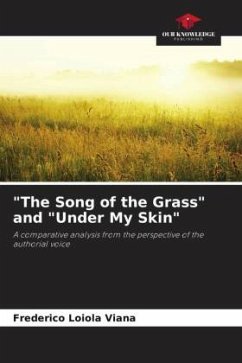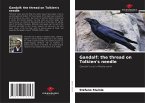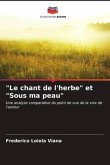This book aims to make a comparative analysis between the novel "The Song of the Grass" (1950) and the autobiography "Under My Skin" (1997) by British author Doris Lessing, from the perspective of the authorial voice, in order to establish the origins of this voice and how it became an engaged voice. It is known that the author was, in the context in which she wrote some of her works, in the midst of ethnic-racial conflicts in southern Africa, more specifically in Southern Rhodesia, where colonisation compared to other parts of the African continent had a difference: the white population held all the power over the land and refuted ethnic and cultural issues related to black people. Lessing also shows the socially subordinate position of women in this society. In this way, the author creates an engaged voice, as she tells us about the social problems of that historical context. Thus, when comparing the two narratives, it was possible to notice autobiographical marks in the work of fiction. These marks are evident in the details with which she describes the country, the farm, her parents' way of life and the power relations present in the situational context.
Bitte wählen Sie Ihr Anliegen aus.
Rechnungen
Retourenschein anfordern
Bestellstatus
Storno








